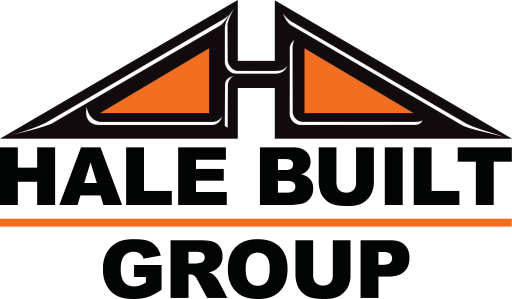
Embarking on residential improvement projects in New Jersey and our other Mid-Atlantic service areas introduces the opportunity to enhance your living space through strategic planning and execution. This guide outlines the pivotal role of residential value engineering—an approach focused on maximizing your investment without compromising quality.
We will explore what sets residential value engineering apart from its commercial counterpart, delve into its processes and objectives, and offer insights into beginning your journey with residential value engineering. Additionally, we'll highlight the indispensable contributions of value engineers and the substantial benefits of this methodology for your home.
Hale Built Group invites clients to explore this article or contact value engineering contractors to learn more about our residential value engineering services in New Jersey and the mid-Atlantic.
Before we delve into how residential value engineering may apply to your home construction project, let's define value engineering.
Residential value engineering is a strategic process applied to home construction and renovation projects to maximize value by identifying and eliminating unnecessary costs without compromising functionality, quality, or design objectives.
It systematically examines construction methods, materials, and designs to ensure homeowners achieve their desired outcomes more efficiently and economically. You may have seen our commercial value engineering page and have wondered where these two services differ in offerings. Below, we list some key aspects to understand when differentiating commercial and residential value engineering.
Key Differences Between Commercial and Residential Value Engineering:
By focusing on these distinctions, residential value engineering ensures that home improvement projects in New Jersey and the Mid-Atlantic meet the homeowner's vision and budget and enhance the property's long-term value and functionality.
Now that we've defined residential value engineering let's look at how this service benefits home construction projects.
The primary objectives of residential value engineering are as follows:
By achieving these goals, value engineering guarantees that residential projects in New Jersey or the Mid-Atlantic meet your current requirements and anticipate future needs, ensuring lasting value and enjoyment of your home.
Now, we'll describe the phases of the value engineering process.
The value engineering process is a systematic approach tailored to maximize the efficiency and value of your home construction or renovation project. It involves several critical phases designed to optimize project outcomes from conceptualization through completion.
Below, we've outlined how residential value engineering typically transpires:
The process begins with an initial consultation to define the project's scope. We establish clear goals and constraints here, ensuring every decision aligns with the homeowner's vision and budget. This foundational step is crucial for setting a focused direction for the project.
A thorough analysis of plans and specifications follows. This phase scrutinizes every project element to uncover cost-saving opportunities without compromising on design or functionality. Potential inefficiencies are identified early on by evaluating materials, methods, and design.
Next, the team brainstorms to generate creative solutions and alternative approaches. This collaborative effort aims to reduce costs and enhance functionality, exploring innovative strategies that effectively meet project objectives.
Each alternative is then rigorously assessed for feasibility, potential cost savings, and impact on overall project quality. This evaluation ensures that the chosen solutions offer the best value, balancing cost-efficiency with high quality and functionality standards.
After selecting the best alternatives, we develop a detailed implementation strategy in this phase. This plan outlines how the chosen solutions will be integrated into the project, ensuring the execution of every step efficiently and according to plan.
The final phase focuses on the execution and ongoing monitoring of the implementation. This crucial step ensures that the project adheres to the value engineering plan, with continuous oversight to maintain quality, manage costs, and adjust strategies as needed.
Following this structured process, homeowners achieve high-quality, cost-effective home constructions or repairs that meet their needs and exceed expectations, turning over every stone in optimizing residential projects.
In residential projects, the value engineer plays a pivotal role by acting as the bridge between the homeowner's vision and the practical execution of the construction or renovation project. They collaborate closely with the homeowner and the construction team to meet the project's goals efficiently and within budget.
Collaboration with the Homeowner:
Working with the Construction Team:
With a value engineer on your side, you'll ensure that your vision is executed within budget, maximizing the overall value and satisfaction with the completed home.
To get started with value engineering for your home, follow these initial steps to incorporate this strategic approach into your project effectively:
These steps will set a solid foundation for integrating value engineering into your home project, leading to a more cost-effective, high-quality outcome.
Partner with Hale Built Group for value engineering services, and let us help you reach your residential construction project's fullest potential. Our decades of expertise in value engineering for residential projects stand unmatched.
We optimize your home's functionality, comfort, and aesthetic appeal while adhering to your budget, schedule, and construction constraints.
Our professionals dedicated themselves to guiding you through the value engineering process, aiding your project with industry insight and professional solutions. Whether you're planning a new build or a renovation, we've honed our approach to meet your unique needs and exceed expectations.
For those ready to elevate their home project with expert value engineering services, contact us today to discuss how we can bring unparalleled value to your New Jersey and Mid-Atlantic residential projects.
